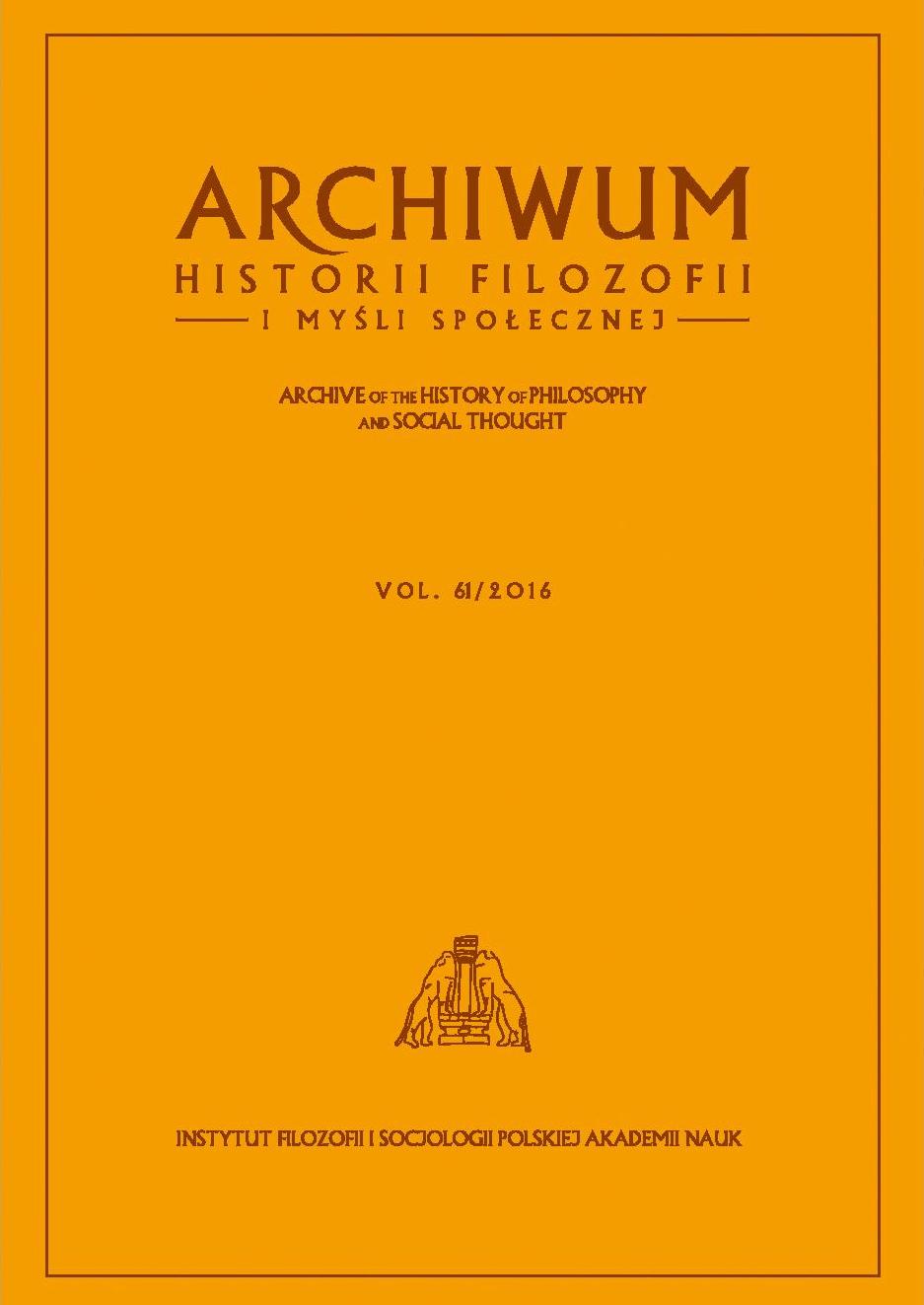Essentia and Substantia in the Trinitarian Dispute of Roscelin of Compiègne and Anselm of Canterbury
Essentia and Substantia in the Trinitarian Dispute of Roscelin of Compiègne and Anselm of Canterbury
Author(s): Marek OtiskSubject(s): Philosophy, Philosophical Traditions, Ancient Philosphy
Published by: Instytut Filozofii i Socjologii Polskiej Akademii Nauk
Keywords: Roscelin of Compiègne; Anselm of Canterbury; Augustine of Hippo; Boethius; dialectics; grammar; God; Trinity,
Summary/Abstract: The main aim of this paper is an analysis of a dispute between Anselm of Canterbury and Roscelin of Compiegne about the interpretation of the Trinity of God. Roscelin’s propositions were condemned at the synod in Soissons in the early 90s of the 11th century, but the first information about his teaching were put down by John, later cardinal-bishop in Tusculum. John wrote a letter to his former teacher Anselm of Canterbury and informed him about Roscellin’s very problematic thesis. Anselm responded with two letters and with the treatise Epistola de incarnatione verbi, a work he re-wrote several times. At the end of this treatise, he mentions (similarly like Roscelin in his later Epistola ad Abaelardum) the key point of the whole controversy: what the Greeks describe as one essence and three substances, the Latins call one substance and three persons; the difference between the Greeks and the Latins is only in words and not in faith. Roscelin and Anselm could read this statement in Augustin’s De trinitate. Anselm probably used also Boethius tract Contra Eutychen et Nestorium and Porphyry’s defi nition of the person (Isagoge 2) to his explanation of the mystery of the Holy Trinity. Roscelin applied Priscian’s assertion (Institutiones grammaticae 2, 18) concerning a noun: each of them (e.g. a person) signifies both a substance and a quality. Roscelin argued that there are no accidents in God; everything in God is a necessary part of the divine essence. Consequently, when we use the noun “person” to refer to God, it must signifies something substantial (and not accidental), in other words the noun “person” signifies the divine substance. If we say that there are three persons in God, together with it we say that there are three divine substances or if the noun “person” is another name for God, than the Father and the Holy Spirit must be incarnated with the Son. It follows that the grammatical and dialectical traditions are the key reasons for Roscelin’s propositions. Inasmuch as Anselm (and Lanfranc) was the most prominent thinkers of the second half of the 11th century who argued for the active use of late ancient grammar (especially Priscian) and logic (Aristotle, Porphyry, Boethius) in questions of doctrine, due to it Roscelin (erroneously) assumed that these teachers would support his theory.
Journal: Archiwum Historii Filozofii i Myśli Społecznej
- Issue Year: 61/2016
- Issue No: 61
- Page Range: 107-122
- Page Count: 16
- Language: English

